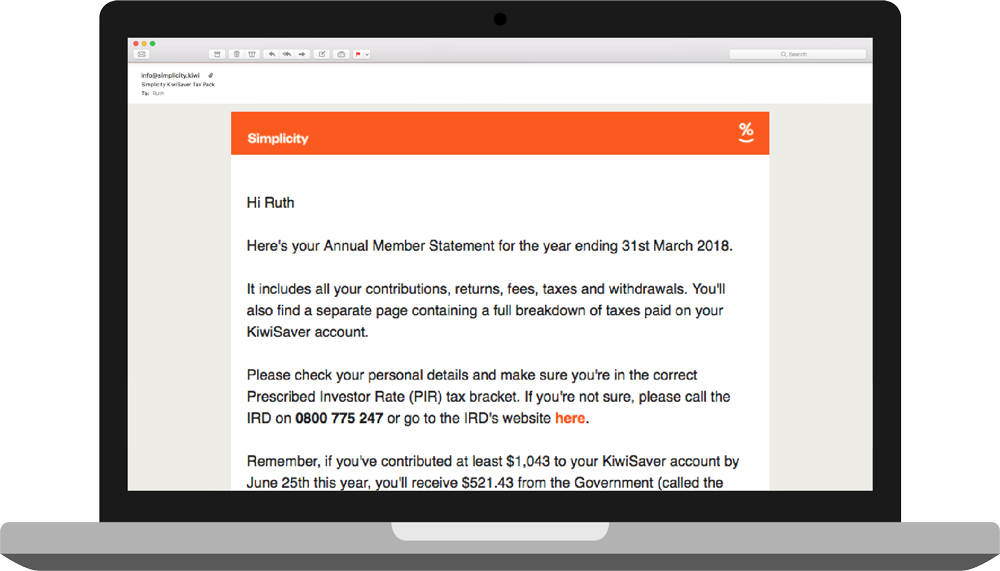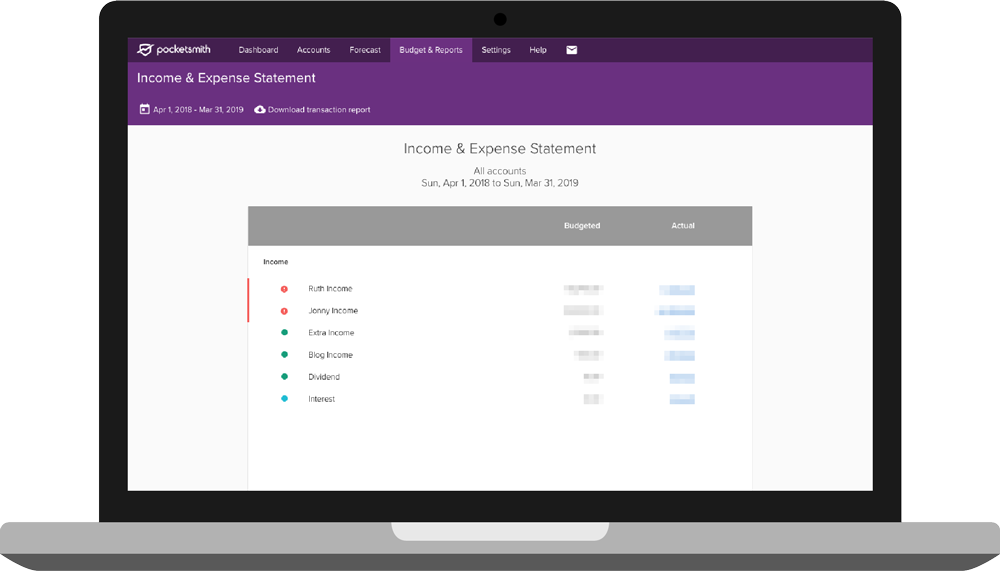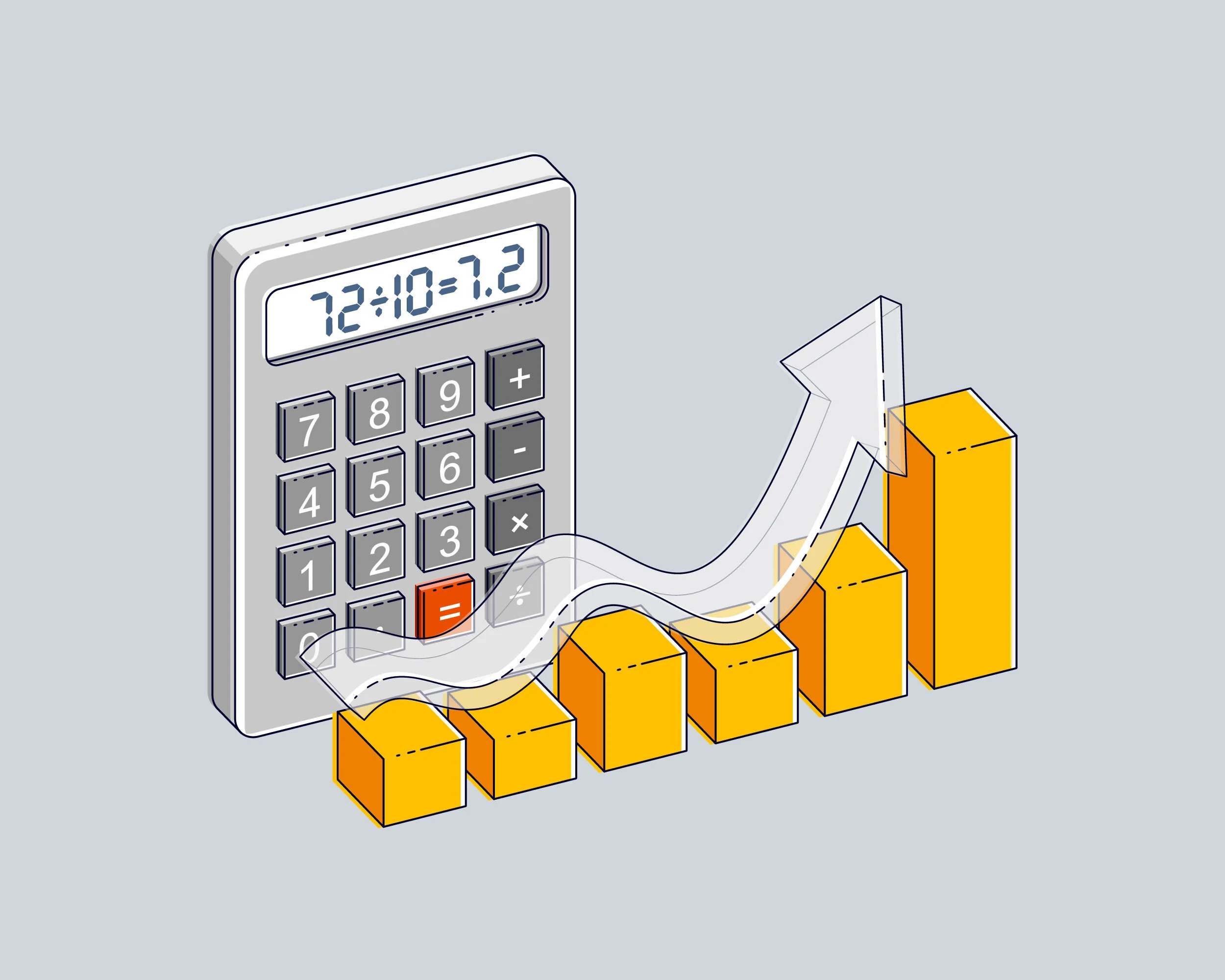The blog post I never wanted to write: TAX
Mar 1, 2020
With so many new investment platforms coming on stream in the last couple of years, it has never been easier to buy a stake in a company via either an index fund or by buying individual shares. It is awesome how accessible investing has become. For the first time in a long time, everyday Kiwi’s are thinking outside of buying an investment property, beyond KiwiSaver and are instead investing in companies and funds that they believe in and I think that is a great thing for the individual, the company and for the economy.
But in this effort to uncomplicate becoming an investor a lot of these newer investment platforms have inadvertently put investing through the complicator when it comes to tax time, because many of you are unsure about how to handle investments in regards to tax.
Now, complete disclaimer as I embark on this blog post, which believe me when I say is the one blog post I never wanted to write:
You know how I’m not a financial advisor? Well, I’m no tax expert either! Heck no. I’ve steadfastly avoided the very topic until today. Therefore, read this with an open mind and hit up Google if you have questions. Or, even better, contact an accountant.
The bulk of Kiwi’s have traditionally gone to work, paid their taxes via PAYE (pay as you earn), maybe had a term deposit or two and also have a KiwiSaver account. Pretty simple. Especially at tax time.
Our tax system is pretty well respected around the world because it’s considered straight forward, with ANY income you make taxed in the following way:
You pay:
10.5% tax: On income between $0 to $14,000
17.5% tax: On income between $14,001 to $48,000
30% tax: On income between $48,001 to $70,000
33% tax: On income from $70,000
Income can come from a huge variety of sources and the general rule of thumb is that you will pay tax on ALL of it, on every cent you earn, no matter where it comes from. I’ll use myself as an example here, Jonny and I earn income in the following ways:
He works as a freelance graphic designer so he invoices clients - he pays tax on that
I work in an office and receive PAYE wages - I pay tax on that
When a company sponsors my podcast - I pay tax on that
If someone is generous enough to Buy Me a Coffee (koha) via my blog - I pay tax on that
If I receive a dividend for the NZ Top 50 fund - I pay tax on that
We both have KiwiSaver - we pay tax on that income
I’ve got a tiny holding of US shares - I pay tax on this overseas income too
When my savings account pays interest each month - I pay tax on that
You get the picture…
Any income we earn is taxable and it is either taxed at the source, or I declare it and pay tax later when we tell the government about it via our tax returns. For many or most of us, we are working a standard PAYE job and as long as we have provided our employer with the correct tax code, our employer takes care of making sure the right tax is paid and if that is the case, either we do our own tax returns or Inland Revenue automatically assesses our tax position based on the information they have collected during the year. And most of the time through this process we have had the correct tax collected on our behalf and we won’t have overpaid or underpaid our taxes.
The reason for writing this blog post is that I’m fielding an increasing number of questions from people who are not sure how to handle tax on their INVESTMENTS, for example, those index funds you have been buying on a steady basis.
Going back just five years if you had enough money to invest in the share market, you were using a broker or a financial advisor to do it and you probably had an accountant as well. For you, getting your tax sorted was all part of the service (which you were paying good money for via their fees). But with so many people taking to DIY investment, it is different now, it is up to us to sort out.
With this self-directed investing and new interest and awareness in finding ways to invest outside of a Term Deposit or your KiwiSaver, it’s lead people to follow the quick and easy sign-up process for all manner of investments. For those turning their attention to investing for the first time, they can become like a kid in a candy store, signing up to and trying every single thing they can. The record goes to one person who emailed me who has a staggering 32 ETF’s plus individual company shares!!! For comparison purposes, I have three.
Becoming an investor has never been so straight forward or achievable, but as a result many of you have gone helter-skelter and signed up for everything. I know this is a problem for me as someone who blogs about investing, each time I hear about a new product or service I too want to sign up and check it out so I can blog about it, but I’ve had to show restraint because otherwise, I am over diversifying, over investing, overpaying in fees, over complicating what should be a very simple investment structure. If you are unsure what that structure could look like, then perhaps read this: Steps to Achieving Financial Independence
Of late I have been receiving emails (I have edited these to protect the privacy of the senders) that begin like this:
“It would be good if you can do a topic on 'tax'. It’s driving me nuts over the last few months”
“Tax is so complicated, I have invested some money in Hatch, some money in Sharesies, some money in ASB, KiwiSaver and now am thinking of InvestNow…”
“If you have over $100,000 in the US500 ETF, or other funds that are comprised of foreign companies, are you subject to being taxed 5% of the capital value p/a in the same way you would be if you held shares outside a fund, i.e. direct shares in a company?
“I've got some money invested in the Vanguard fund on InvestNow because of their extremely low fees. I know that FIF tax rules apply to this fund, but I have no idea how to calculate this and pay it”
“I want to take help from a tax accountant but my investment is so little (around $30,000) and am not sure paying an accountant $800 dollars is worth it”
“Can you tell me if there is a website that has info on tax relating to interest/dividends on investments?”
My response to these emails is generally along the lines of “this is waaaaay beyond my realm of expertise!” I know when I am working outside of my comfort zone and area of interest!
To be perfectly straight up with you, Jonny and I use an accountant, because I like the people above was becoming confused about exactly what my tax obligations were, so the rest of this blog post is going to focus on how we go about things.
How we go about things:
Jonny has always used an accountant which is a hangover from when he owned a company, then when he went out on his own as a freelancer, he had an accountant do his end of year accounts. I on the other hand was generally in a PAYE job, so no need to do a tax return and when things did begin to change with me and my stream of income either stopped (when I had our daughter) or changed when I took on different jobs, I would say “I’m going to do my own tax return this year Jonny” and he would quietly watch me log on to the IRD and try, watch me confuse myself and then he would offer the following advice, “play to your strengths Ruth, tax accounting is not one of those strengths, stick to what you know”.
And he was right, so personally for the last seven years I too have utilised the skill of an accountant each year. Friends have scoffed at this and told me how EASY it is to do your own tax return and that I’m wasting money by paying someone else to do it for me, but I disagree. Yes, it costs me money (more on that below) but it could also cost me money if I do it myself and get it wrong. I reckon I could cut my own hair if I wanted to, but you don’t see me attempting that do you? Heck no. While I am all about cutting costs and reducing expenses, sometimes it’s worth spending just a small amount of money to get things done correctly. In my case, this refers to taxes AND haircuts. Because I’m invested in low cost funds I’ve already eliminated a huge amount of costs associated with active management, so I figure that using an accountant is my only overhead with this investing strategy.
Plus, in the very first year that we did use an accountant they found me about $7,000 I never even knew I was owed! That pretty much sealed the deal for me and although each year I have the same conversation with Jonny saying “I think I should just do my own tax return”, each year I don’t. I have NO regrets either.
I spoke to my accountant recently and mentioned that I’m receiving a lot of tax questions and perhaps unsurprisingly he suggested that people should use an accountant if in any doubt, the reason being that if people are branching out into a variety of investments with different providers, plus they have other things going on money wise in their lives (if they receive working for families, if they have a side hustle, if they are buying and selling property, if they have a rental property, if there are imputation credits as part of their share investments), then this makes them and their situation UNIQUE and it deserves a unique approach, specific to them.
I definitely am that unique individual, with a lot going on, I’m earning income from a variety of sources and it’s not as simple as collecting a paycheque from one employer each week and I know that when I look at my finalised return that they provide me, telling me what I owe and what I’m owed, I realise I could not have worked all that out myself.
So far, I don’t think this blog post has helped anyone. I’ll keep trying…
Here is how I spend my year making sure I am paying the correct tax and then compiling the appropriate information so my tax return can be completed:
I have to get the basics right from the very beginning. Firstly, I want to be sure that I’m paying the correct Resident Withholding Tax (RWT) with each investment. In most instances, if all’s right with the world and I have selected the correct tax rate for each investment my tax is deducted without me having to do anything. With EACH investment I own it’s MY responsibility, not the IRD’s, to make sure I have selected the correct tax rate.
Many of my investments are into PIE (portfolio investment entity) funds and they have special tax rules. If I am investing in a PIE fund it will ask for my PIR (prescribed investor rate) because this dictates the tax I am liable for, if I don’t select one it will default to 28%.
If you are investing in a PIE, these have a lower TOP tax rate (which is a good thing) and there are three rates to choose from:
10.5%
17.5%
28%
The rules for PIR are different to the other tax rates I mentioned above (10.5, 17.5%, 30% and 33%). If you are a person who falls into the top tax bracket with your income of 30% and higher, then it is an advantage to you to have an investment into a PIE with a PIR of 28%. The PIR rates of 10.5%, 17.5% and 28% benefit those on a higher tax bracket the best, that is those who normally pay 30% and 33%. Instead of being taxed at these two highest rates any PIE fund they use have the top tax rate of 28% and they therefore save on taxes.
So, that is why you will see many institutions offering PIE funds, because they offer tax advantages. For me it makes no difference, there is no benefit to me because I’m on a lower income anyway. For example, my KiwiSaver is structured as a PIE so my individual PIR rate of 17.5% applies. BUT I still make sure I select the correct PIR rate for each investment so that I am taxed correctly for my level of income.
The company you invest with will ask for your IRD number and also your PIR - if you have KiwiSaver, they will ask for your PIR, your bank will ask for your PIR etc. You are responsible for providing the right PIR to each provider and most will give you a handy calculator (Using prescribed investor rates) to work out what your rate should be (it is based on your previous two years of income).
If you don’t provide the correct PIR, and you’re in one of those higher tax brackets, when you file your tax return or the IRD assesses your tax position for the year then you could end up paying tax at your top tax rate on that PIE income and therefore lose that tax advantage. For this reason it is also important to check your PIR on your PIE investments and let them know if it needs to change because you have changed tax bracket.
One further question they will ask is “are you a tax resident of another country?” and if you are you need to supply your Tax Identification Number (TIN). This is to prevent offshore tax evasion, which will be the furthest thing from 99.9% of your minds, but still worth being aware of.
Around March/April every year each investment provider I use will give me an end of year tax summary, they will either email it or I just go into my investment and find it myself. And throughout the year when I receive anything tax related, such as a notification of a dividend payout, I print this off and start a physical tax file so I know what dividends I’ve received and what tax I’ve already paid. Then I save all those emails in a folder on my computer marked “TAX”. I like to print out these statements because I receive many emails from each place I’m invested, many of which I just delete but I don’t want to lose this tax one so I make sure I save it both digitally and physically in my tax file:
Folder for all my tax related documents (and other investment stuff).
The likes of Sharesies gives me a nice clear tax statement to work from:
My Sharesies Tax Statement document.
Finding information on my SmartShares, who I buy directly from, is a bit different, I need to go to Link Market Services instead where they have a record of all dividends (income) I’ve received. For a charge, they would give me a complete tax summary but I’ve never found the need for this. Instead I just print out the information because each fund only has two dividend payments each year which I then add to my file:
Link Market Services screen showing my tax history.
To focus on SmartShares for a minute, they have a set PIR of 28% and there is nothing I can do about that, I can’t choose any other rate. But my personal PIR rate is actually just 17.5%, so I am OVERPAYING tax here. So my accountant deducts tax I have overpaid from the tax I need to pay, so I end up having paid the correct amount of tax overall. I think if I had been doing my own taxes I would have missed this or mucked it up somehow.
PLUS, you may see the words “imputation credit” on some of your investment statements. What on earth is an imputation credit?
Companies who are in my NZ Top 50 (FNZ) fund pay tax as part of doing business. So I don’t need to pay that tax again. So I am issued imputation credits that offset any tax I am due to pay. i.e. If I owed $100 in tax, but I had $30 of imputation credits, my tax bill is now $70. Super important that I know about these - or that my accountant does!
My KiwiSaver provider Simplicity send me a tax certificate as part of my Annual Member Statement at the end of the financial year 31 March:
Email from Simplicity containing my tax certificate.
Also, this year, for the first time, I have a foreign investment because I bought into a US listed ETF via Hatch and as far as I’m aware this means that I HAVE TO file a tax return, even though my investment is teeny tiny. I think that it’s these investors who are new to US investments that are getting tripped up, so here is an article that explains things better than I can myself: Tax Attack: What you should know about your US & NZ tax obligations
It’s if I had over $50,000 in overseas investments that more tax rules kick in, the FIF rules (Foreign Investment Fund), but that’s not me at this stage. If this is you, then if I woke up in your shoes I would definitely see a tax professional. But for me, like with the other providers I use, Hatch will also send me a tax summary. I’ll just print it off and add it to my file.
Another trick I have up my sleeve which helps me add the correct info to my tax folder and which is proving particularly useful given my US listed investment, is Sharesight, because they integrate with Hatch. Because I’ve been entering each trade and dividend for all of my other investments as the year has gone along, at the end of financial year it can also provide me with a complete summary of income from my dividends. Sharesight is FREE to use if you have under 10 holdings.
Sharesight screen showing my taxable income report.
And finally, as the end of the financial year ticks over to a new one I turn to PocketSmith and using their Income and Expense Statement for the financial year I look closely at all of my sources of income that have come in and been categorized throughout the year by me and I make sure I have added them to my list of income to tell my accountant about.
PocketSmith screen showing Income & Expense Statement.
Because I also have PAYE income, the IRD has been collating this information as the year has gone along. So, as March/April (end of the financial year) rolls around I create myself a list of ALL of the ways I have earned income: Wages, SmartShares, Sharesies, KiwiSaver, Bank accounts, Blog income, ETC etc etc
Then I keep an eye out for the end of year tax summary that I need for each of them and just tick them off my list when they arrive. I hope I have not made this sound complicated, because it is actually pretty straight forward.
The trick I find is to compile things throughout the year, otherwise you will get to the end of the financial year and be scurrying around trying to find and remember all the information you need.
It’s at this point, once I’ve collated everything that in theory I could go onto the IRD website www.ird.govt.nz and fill out my own IR3 return and I know that many of you reading this would be shaking your head at me that I don’t. Apparently their site is very user friendly these days. Instead, I wander downtown and drop it into our accountant and they process it and get back to me when it’s complete. I figure that my investment strategy is already saving me a tonne of fees, by not paying an underperforming, yet overcharging financial advisor, so I’m willing to spend a little here.
And this is what I receive back:
Income & Tax Summary that comes back from the accountant. I always skip directly to the bottom to find out whether I owe the IRD or whether they owe me! Click image to enlarge.
So, yes, you will pay for this service but roughly how mucho?
I sent my accountant an email enquiring as to the cost of having a tax return completed for someone with a PAYE job, plus some fund investments, KiwiSaver, plus a small amount of Foreign Investments, about $1,000. He said that the cost to complete their tax return would be about $250 - $300 plus GST*. Personally speaking, that is a price I’m willing to pay. I’ve done as much work as I can for them by providing them with all of the necessary documents and then I leave it in their hands and I know that it will be CORRECT.
*This is an Alexandra based accountant I’m referring to here, so perhaps have a ring around in your town for rates, plus talk to your friends and colleagues for a few recommendations.
Side Hustle Note: I see a gap in the market for someone with accounts and tax experience to help this new breed of investor coming through the ranks complete their tax return cheaply. I’m not talking about those dodgy tax agents who set up in malls, instead someone catering specifically to those in the FI community with the knowledge and skills to navigate the IRD.
Our tax year runs 1st April to 31st March, so as we draw closer to that end of March date I’m really starting to make sure my list of what information I need to look out for is complete and I would encourage you to do the same. With a lot of what I do around money I’m very hands on, I don’t engage a financial advisor and via research and learning I’ve developed our own investing strategy. But when it comes to tax time, this is one area where I engage a professional. So, in writing this blog post today I’ve not managed to answer those questions that were emailed into me directly, but I hope that I’ve given you a bit of insight into how I handle my own taxes and what I do to make sure that I’m paying the appropriate amount of tax for my specific situation. I encourage you to seek out professional advice yourself if you are in any doubt, sounds like a cop out I know, but in this case I think it’s sound advice.
Happy Saving!
Ruth
Additional Resources:
Kernel Wealth - Invest in Kiwi Made
Sharesies - Advice and Answers: Tax
I found this podcast episode on Cooking the Books: The tax realities of making a side hustle work









